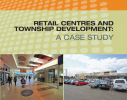Land Library
Welcome to the Land Portal Library. Explore our vast collection of open-access resources (over 74,000) including reports, journal articles, research papers, peer-reviewed publications, legal documents, videos and much more.
/ library resources
Showing items 1 through 9 of 17.As Parliamentary gender quotas have become increasingly popular, so too
has the debate surrounding their effectiveness in enhancing women’s
representation and gender equality in governments around the world. Women offer
This case study draws on research that investigated the extensive informal land market in Maputo, Mozambique; specifically, how urban land is transacted and the mechanisms by which it is secured.
This case study draws on research that investigated the extensive informal land market in Luanda, Angola. It examines how urban land is transacted and the mechanisms by which it is secured and regulated. The case study is based on research undertaken by
The World Bank in 2010/11 undertook an in-depth review of land governance and land policy in South Africa, with Urban LandMark managing the process and implementing a Land Governance Assessment Framework (LGAF) for South Africa.
This case study is based on an existing booklet, Retail Centres and Township Developments: A Case Study (SACN, 2010) published by the South African Cities Network (SACN), the Training for Township Renewal Initiative (TTRI) and National Treasury. The booklet draws on prior research on
This case study draws on research that investigated the financial sustainability of cities in the Southern African region. The research was undertaken by the South African Cities Network (SACN).
This working paper by Tikvah Breimer previously of the Institute for Housing and Urban Development Studies (IHS) and Mark Napier previously of Urban LandMark, analyses the provision of core housing in Khayelitsha, Cape Town, specifically taking into account the residents' response to the state's
Large-scale land acquisitions by investors, which are often called ‘land grabs’ (see next section for de nition), can deprive rural women and communities of their livelihoods and land, increasing their food insecurity.
After remarkable social and economic reconstruction since 1994, Rwanda aspires to become a middle income country by 2020 with a strong focus on inclusive growth. In this context the Government of Rwanda (GoR) has recognized the critical nature of land policy and agricultural growth.









